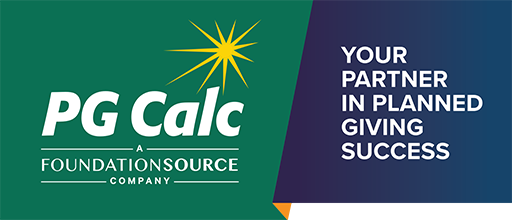COVID-Era Success Stories in Planned Giving
-The global pandemic created by the spread of COVID-19 has impacted millions of lives, disrupted the operations of charities and organizations, and upended planned giving fundraising as we know it. Yet from this global crisis, we have witnessed several remarkable planned giving success stories from our clients. Following are four of these successes that we hope will prove educational and inspirational.
The NSGPS from CGP has Something for Everyone
-Unveiled at the CGP 2020 Conference this month, The National Standards for Gift Planning Success ("NSGPS" or "Standards") are designed to help you engineer a successful planned giving program. Much more than a just simple list of best practices, the NSGPS is a comprehensive toolkit to help identify and overcome challenges that may be hindering your gift planning efforts. The Standards are not prescriptive and are scalable to the size and maturity of your program, allowing you to adapt and address current needs while building on your strengths.
Partnership for Philanthropic Planning (PPP)
-The Partnership for Philanthropic Planning (formerly the National Committee on Planned Giving) is a national federation of local planned giving associations. PPP's mission is to promote research, education, and legislation in the area of philanthropic planning. Some of the activities that it sponsors include the National Conference on Philanthropic Planning, the Gift-PL discussion list, the Journal of Gift Planning, the PPP web site (www.pppnet.org), and periodic teleconferences on selected planned giving topics.
To contact the PPP, call 317-269-6274 or write to:
Council for the Advancement and Support of Education (CASE)
-The Council for Advancement and Support of Education (CASE) is an international association of education advancement officers. Members include alumni administrators, fund raisers, public relations managers, publications editors, and government relations officers. CASE's purpose is to help its members advance the cause of education. It does this by offering them information resources and training opportunities.
To contact CASE, call 202-387-4973, go to its web site (www.case.org) or write to:

